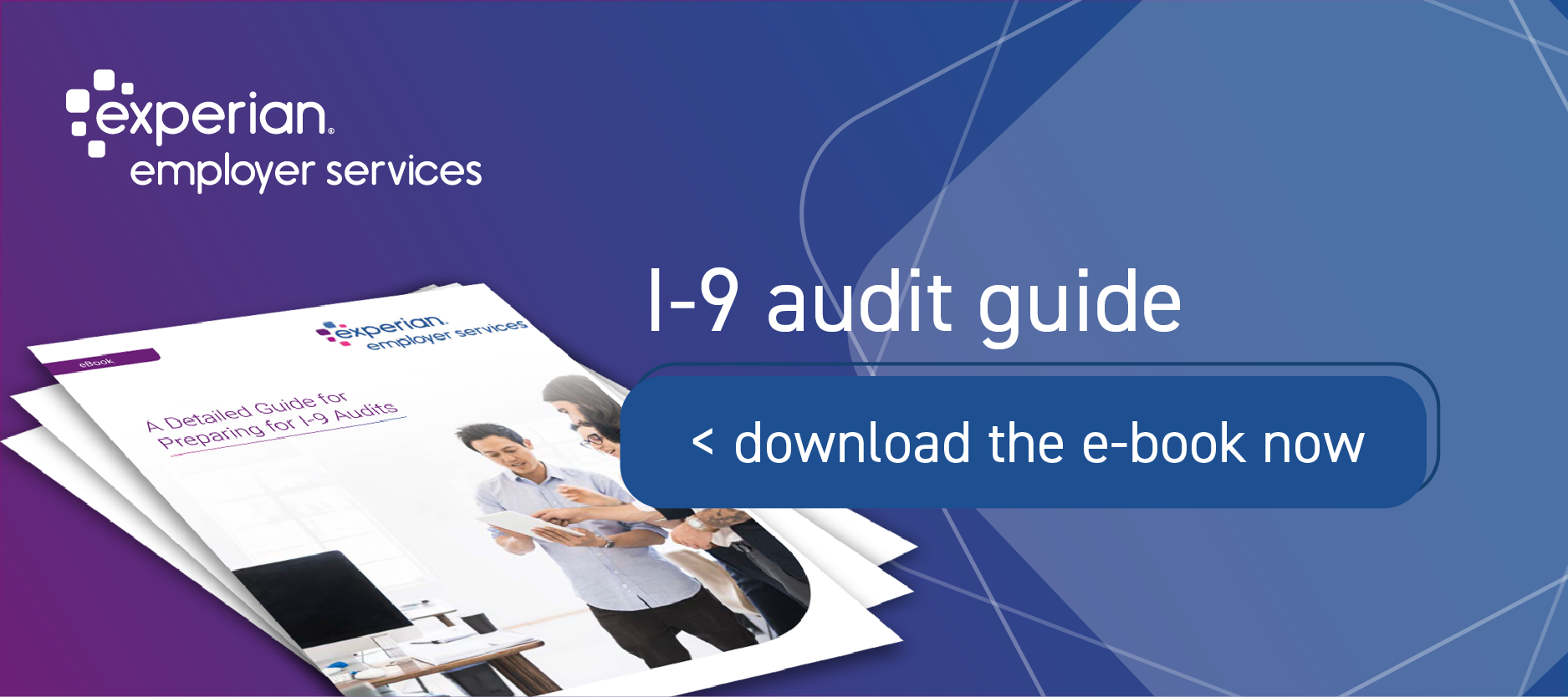
No employer is immune to the possibility of an audit of their I-9 process. The key to a successful I-9 form audit is understanding how to build and lead a team that understands Form I-9 compliance to ensure a successful outcome.
I-9 Form Audit Purpose and Consequences
An I-9 form audit is an administrative review conducted by the U.S. Immigration and Customs Enforcement (ICE) or the U.S. Citizenship and Immigration Services (USCIS) to ensure an employer has properly completed and retained the I-9 forms for all its employees. The purpose of an I-9 audit is to identify employers who have not properly completed or retained the I-9 forms, or who have knowingly or unknowingly employed individuals who are not authorized to work in the United States. Employers that are found to violate the regulations may be subject to fines, civil and/or criminal penalties, and other legal action. The I-9 form is a document employers are required by law to complete for each employee to verify the employee’s identity and work authorization to work in the United States. The I-9 form audit involves a review of the employer’s I-9 forms, supporting documentation, and the employer’s compliance with the regulations.
An I-9 audit can be a stressful and challenging experience for both the management and the employees. A proactive organization will anticipate an audit by regularly reviewing and updating I-9 policies and procedures and making sure all I-9 forms and documents are in order. Hence, forming and leading a team during an I-9 audit is the key to success and it is of utmost importance to have a well-organized and effective team in place to handle the audit to minimize any negative impact on the business.
Building a Successful Audit Team
The team should be composed of individuals with the appropriate skills, knowledge, and experience to handle the I-9 form audit and ensure compliance with the regulations. An important role to designate first is the point person, such as an HR representative or compliance officer to lead the team. An I-9 subject matter expert with knowledge and experience of the I-9 process, regulations, and compliance requirements, is crucial, and is someone who can review the I-9 forms and supporting documentation, and identify any errors or discrepancies. Record keepers responsible are necessary to maintain the company’s I-9 forms and other employment records, and who can provide the government agency with the required documentation during the audit. Internal and/or external legal counsel or an immigration attorney advise the company on the I-9 regulations and compliance requirements, and represent the company in any legal proceedings. In addition to these roles, a skilled data analyst is able to review the I-9 forms and other records to identify any errors or discrepancies. This person will be responsible for preparing the necessary information and documents to respond to the audit. IT professionals can provide technical support for the company’s I-9 management system and ensure that the data is secure and accessible during the audit, communication specialists who can communicate effectively with the government agency and coordinate the company’s response to the audit, including the gathering and submission of required documents. Trainers can provide training and education to the team members on the I-9 process and regulations, while an expert from global immigration and mobility specialists assist you with Section 3 reverifications and respond to queries about internal and external transfers, ex-pats and sponsorships. Last but not the least have your vendor involved if you outsource your I-9.
How to Lead Your Team During an I-9 Form Audit
Keep your employees informed about a pending audit and communicate if the audit is internal or a response to an external request and what to expect. You must provide clear instructions on responding to the audit, and ensure participants understand the importance of cooperating fully. Communicate the expectations and timelines of the audit to the team members and provide them with all necessary information and training related to regulations, compliance requirements, and your company’s policies and procedures to ensure compliance.
It is important to carefully review the audit notice and understand the scope of the audit, the timeframe, documents that will be requested which are not limited to payroll records, business registration records, E-Verify MOU, E-Verify case results, I-9s, supporting documents, job aids, and SOPs, historical i-9 records, audit history, etc. which must be gathered and reviewed to ensure they are complete and accurate.
When responding to external requests, it is advisable to be cooperative and responsive to the government agency’s requests for information and documents and keep a detailed record of all communication, actions, and decisions made during the audit process. It is also may be advisable to consider seeking the help of a lawyer or other professional to assist with the audit process and represent your company if necessary.
An organization should hold regular team meetings to discuss progress, identify and resolve any issues, and adapt as needed. Participation from all team members must be encouraged and essential resources and support must be provided to enable the team to complete their tasks. An I-9 form audit can be tedious, mentally draining, and monotonous, so you should show support to the team members and assure them they are doing a good job. If any errors or discrepancies are found during the audit, take corrective actions as soon as possible and document them.
After the audit, review your I-9 process and make any necessary changes to ensure compliance with the law. By following these steps, you can manage your team effectively during an I-9 form audit and help to minimize any adverse impact on your business.



